In Memoriam: The V8 Engine 1900-201?

With the oil crisis of the ‘70s many predicted the death of the V8 engine, but it has continued to solider on. With Chrysler and Infiniti execs recently commenting that there’s no place for eight-cylinder cars in the future of their respective brands, this time, are the V8 engine’s days finally numbered?
Sergio Marchionne, CEO of Fiat and Chrysler gives an ominous take on the V8 muscle car, like the Dodge Challenger, saying that very soon these types of cars will be as “rare as white flies.” There’s a deep heritage of eight cylinder engines in the Chrysler group, and it’s hard to imagine the American automaker will do without them. The company’s 5.7L Hemi V8 engine is good for up to 390-hp and 407 lb-ft of torque and is used in sedans, off-roaders, pickups and SUVs. SRT models get a larger 6.4-liter unit making as much as 470-hp.
With the V8 engine in more than half of the group’s products, the company will have to re-tool a significant amount of its range if the Chrysler group’s CEO is right about the disappearing V8.
Infiniti CEO Johan de Nysschen said something similar to Marchionne, commenting that no new Infiniti products will get a V8 engine.
Traditionally, Infiniti only used V8s in its higher-end vehicles. While the top of the line Infiniti M sedan has a large 5.6-liter V8, lower trims of the car are available with two other engines which have proven to be more popular with the market, including the speedy M35h hybrid. The Japanese luxury brand also uses V8s in its FX and QX SUVs, but with fuel economy ratings of 14/20 and 16 mpg combined, no one is buying them with fuel-savings in mind.
While the Nissan luxury brand doesn’t release information on the volume of V6 to V8 engines sold in its individual vehicles, Kyle Bazemore of Infiniti Communications has confirmed that, “We sell more V6-equipped Infiniti FX35 and M37 models than we do FX50 and M56 versions.”
NEW V6 ENGINES OUTSHINING OLD V8s
Eight-cylinder engines have always been a bit thirsty, but that gasoline lust always came with the promise of power. However, thanks to a handful of new advancements in engine technology, V6 engines now produce similar power ratings to many V8s, but with better fuel economy.
“New technologies are enabling better performance out of the V6 engines, with the added benefit of fuel economy over the V8,” says IHS Engine Analyst Jeff Jowett. “Direct Injection and turbocharging are just two examples of how automakers are getting more out of V6s”
Looking at Ford’s twin-turbo EcoBoost V6 engine in the Ford F-150, power is rated at 365-hp and 420 lb-ft of torque. That V6 makes more power than Ford’s current 5.0L V8 and is almost up to the torque ratings of Ford’s 6.2L V8. Not only that, but the EcoBoost engine in the 4WD F-150 gets at least two miles per gallon more than the V8 offerings. Furthermore, the EcoBoost V6 is selling more than V8.
As much as consumers want better fuel economy in their vehicles, the government has an important factor in automakers cutting V8s from the range. The Corporate Average Fuel Economy (CAFE) standards are looming over automakers, forcing them to reduce the average fuel economy of their whole fleet of vehicles. Automakers are expected to bring the average fuel economy up to 54.5 mpg by 2025, an increase of over 50 percent from 2016’s proposed average of 35.5mpg. Killing off the gluttonous V8 is the easiest option for increasing a company’s CAFE number.
WHO’S GOING TO MISS TWO CYLINDERS?
“’Where do we need a V8?’ That’s what the automakers are going to be asking themselves right now,” said Jowett. Ford has defied conventional wisdom and proven that a V6 can match or even out-sell a V8 in a pickup truck. Considering that success, Ford’s rivals may follow suit.
Sports cars and performance oriented vehicles are the next to be scrutinized. What kind of performance can be attained with a V8, that can’t be done with a modern V6? Look at the iconic American muscle cars like the Camaro, Challenger and Mustang. All of them are available with a V6, but is that the answer?
“For the purists, I don’t see them losing the V8 in performance cars,” said Devin Lindsay, HIS powertrain analyst. “It always needs to be an option.”
However with the automotive industry gaining more of a global mindset, engines can be different from region-to-region. Ford’s Mustang is rumored to land in Europe, but with an optional EcoBoost engine, but its success will be difficult without a V8. “The V8 just adds authenticity to it, that’s what makes it American” said Lindsay. Vehicles from Maserati, and the Chevrolet Corvette have the big V8 engine to thank for their distinct performance characteristics and personality. It just wouldn’t be the same without a big eight-cylinder engine.
That means that the V8 is most likely to disappear from the range of sedans. The Chrysler group, has already made progress with this by providing the solid 3.6L V6 as an alternative to the Chrysler 300C and Dodge Charger sedans. According to Allpar.com, a site devoted to Chrysler Group news, the Pentastar V6 is slated to be mated to turbochargers in the next few years. A twin-turbo version of the V6 would put out somewhere near 420-hp, while a single turbo model is estimated to net 370-hp. Advancements like this would make the V8 that used to reside in Chrysler products look ancient in comparison.
THREATENING THE THIRSTY GIANTS
Turbochargers aren’t the only thing threatening V8s. Gas-electric hybrid powertrains are sitting in places where V8s would normally be used. Lexus is making that move in its RX450h crossover and GS450h luxury sport sedan. These vehicles use a combination of a V6 engine and electric motors to provide a feel that’s comparable to a V8, but with far better fuel economy.
Diesel is another alternative that’s being explored to replace V8 torque, although adoption in North America has been slow. European automakers like Volkswagen and Mercedes-Benz offer diesel V6s in bigger vehicles that would traditionally use V8s. The diesel engines in the Volkswagen Toureg TDI and the Mercedes-Benz ML350 BlueTEC both offer a generous amount of torque and are competitive against the V8 competition, and still offer some towing capability at a price-point similar to that of a V6.
FAR FROM DEAD
“We’ve heard it all before” said Jowett, and he’s not alone in suggesting prophecies of the death of the V8 are premature. Still, as technology and advancements in engine efficiency continue, the V6 will continue to catch up to the power of the V8, while delivering more miles per gallon. The V8 may not yet be dead in sports cars or trucks and utility vehicles, but it may become the option in a minority of them, while the V8’s days under the hood of a sedan have most certainly come to an end.

Sami has an unquenchable thirst for car knowledge and has been at AutoGuide for the past six years. He has a degree in journalism and media studies from the University of Guelph-Humber in Toronto and has won multiple journalism awards from the Automotive Journalist Association of Canada. Sami is also on the jury for the World Car Awards.
More by Sami Haj-Assaad



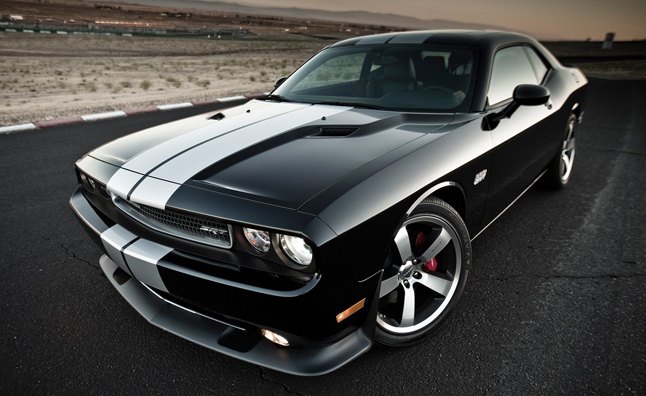
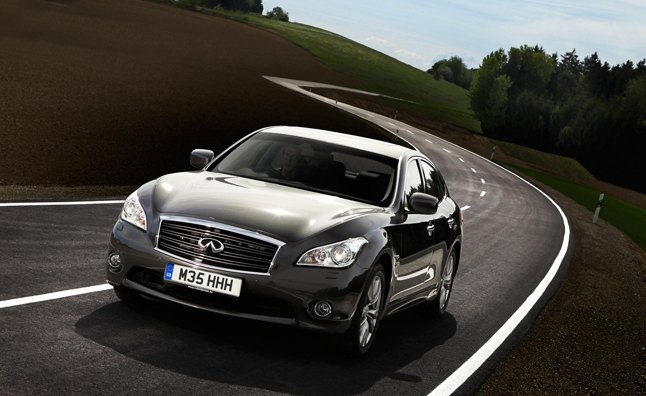



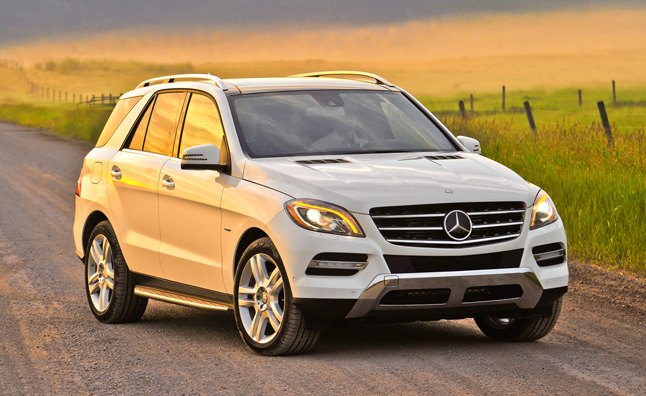
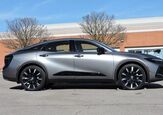









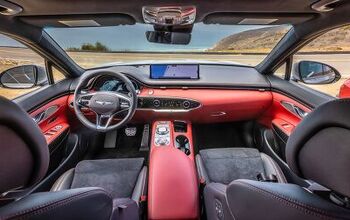

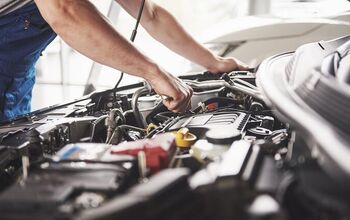
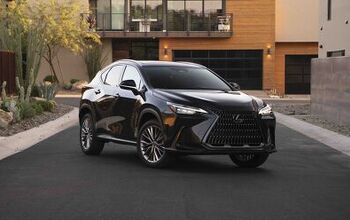
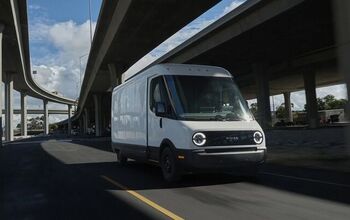
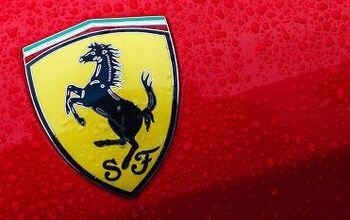

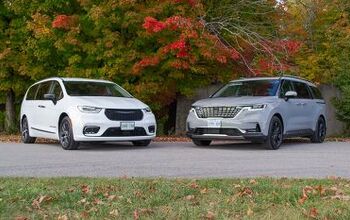

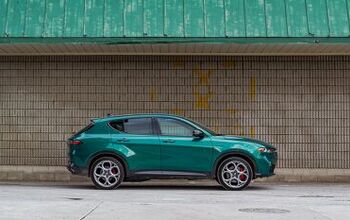
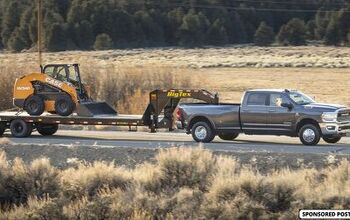
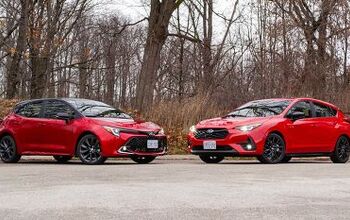
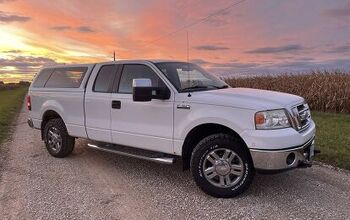

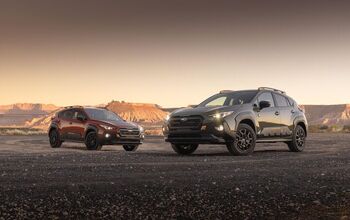

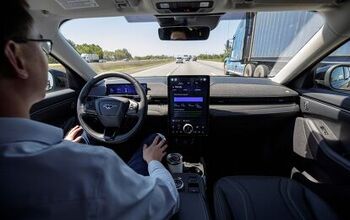
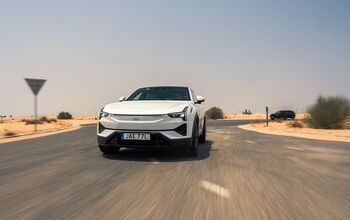
Comments
Join the conversation
Iet.'m old enough to remember when the convertible was dead. The Camaro was dead and rose from the grave. The Corvette v8 will be around as long as there is a Corvette. The only thing better than cubic inches is cubic feet. Squido
Good riddance. The country gets more overcrowded, and the solution is 400 horsepower vehicles for the penis deficient. Perhaps we need to have the gas guzzler tax due when annual plate fees are due.